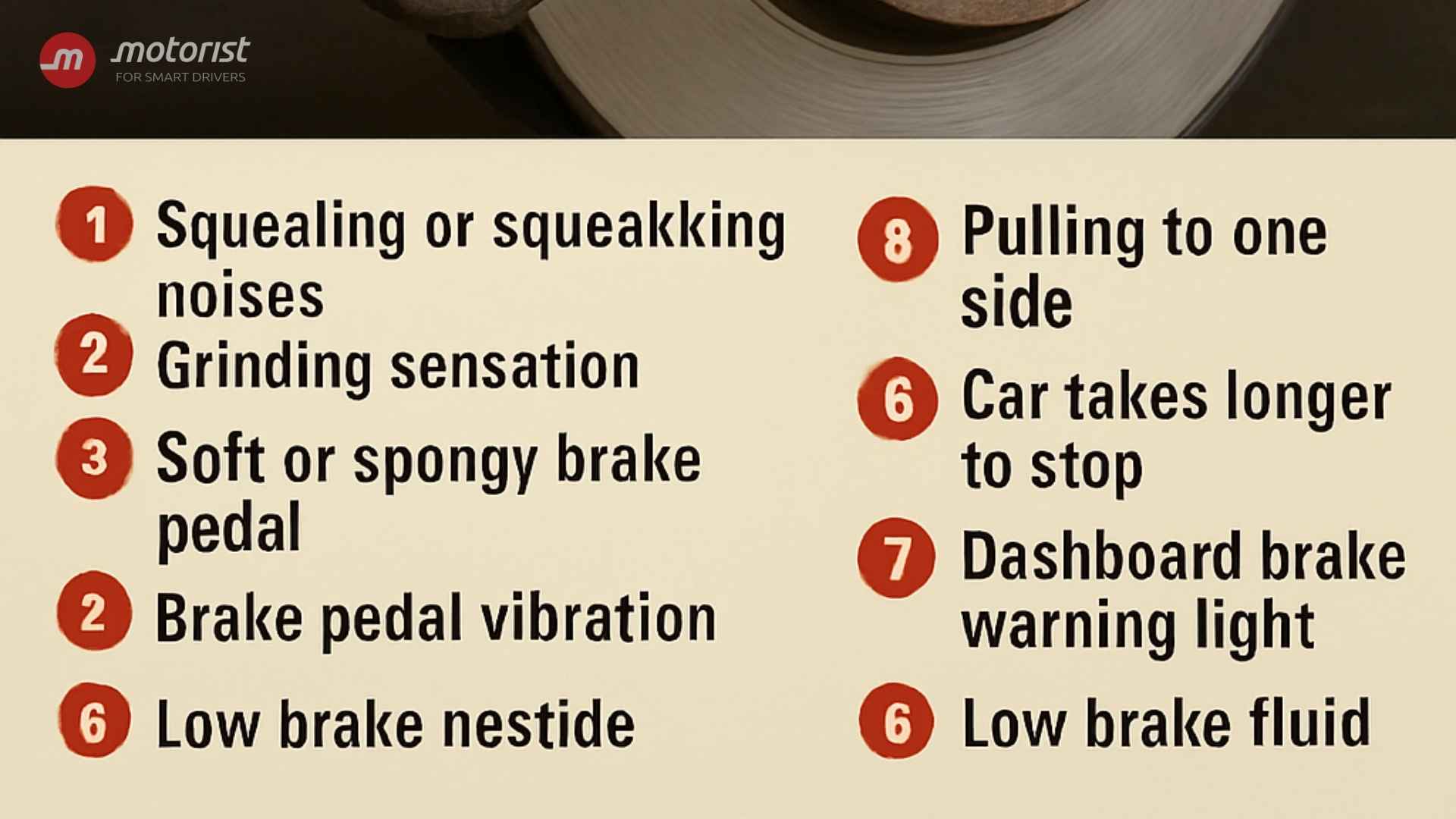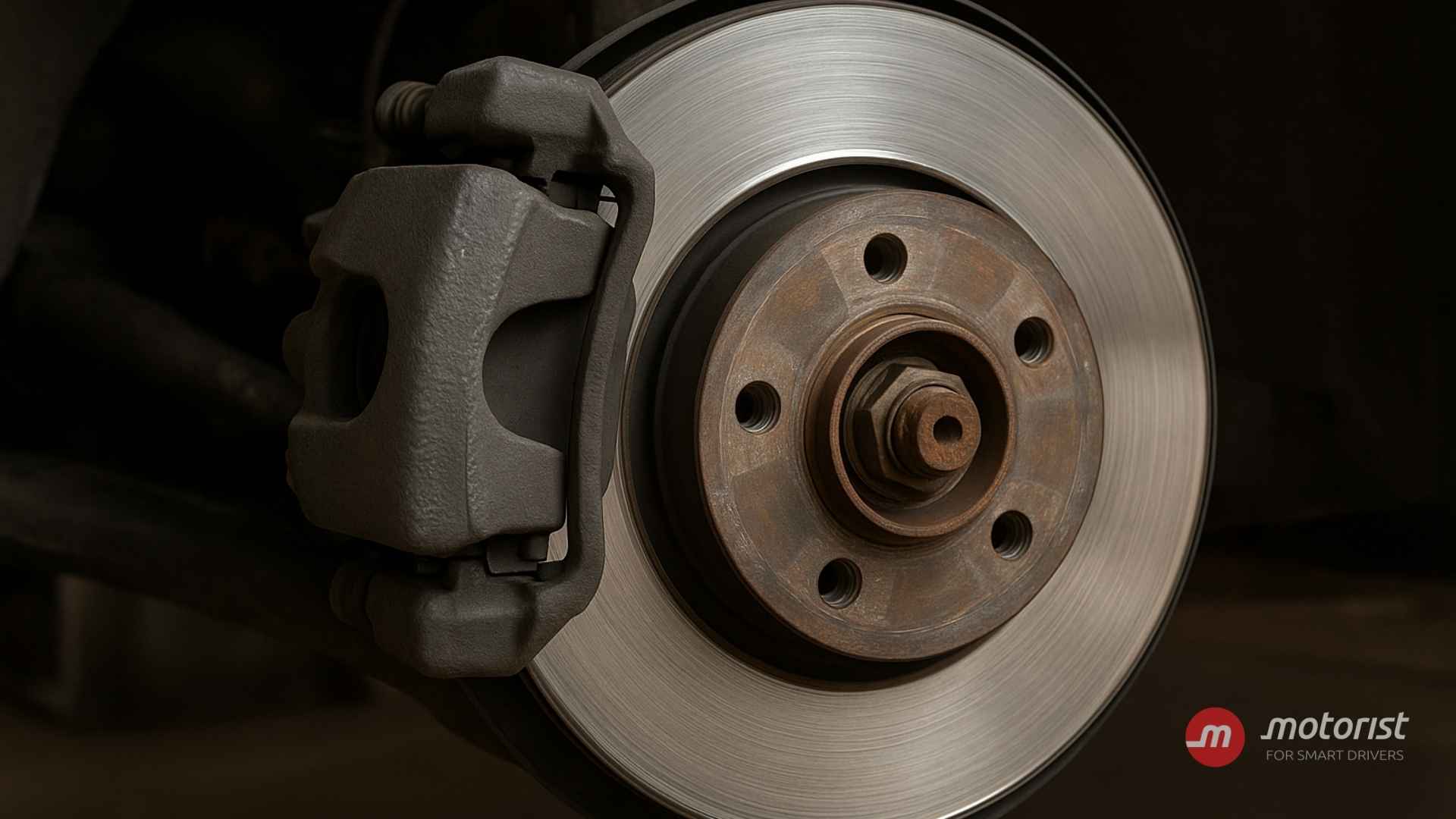Brakes not biting? 9 signs of faulty or problematic car brakes you need to know
Why Brake Safety Matters for Every Driver
Your car’s braking system is its most important safety feature. Whether you’re driving in heavy Kuala Lumpur traffic or cruising on the North-South Expressway, properly working brakes ensure you can stop quickly in emergencies. If your brakes aren’t biting or responding properly, it’s not just a minor inconvenience—it’s a life-threatening risk.
How Car Brakes Work: A Quick Overview
Before diving into the warning signs, let’s understand the basics of car brakes.
Hydraulic Pressure and Brake Pads
When you press the brake pedal, hydraulic fluid transfers pressure to the brake pads, which clamp onto the rotor to slow the wheels.
Role of Rotors and Brake Fluid
Rotors create friction while brake fluid ensures smooth, consistent pressure. Any issue with pads, rotors, or fluid directly affects stopping power.

9 Warning Signs of Faulty or Problematic Car Brakes
1. Brakes Feel Spongy or Soft
If your brake pedal sinks too easily, air may be trapped in the brake lines or fluid may be leaking.
2. Grinding or Squealing Noises
High-pitched squeals usually mean worn brake pads. Grinding, on the other hand, suggests the pads are gone and metal is rubbing against metal.
3. Car Pulls to One Side When Braking
Uneven braking force from damaged calipers or worn pads can make your car veer left or right.
4. Brake Pedal Vibrations
A vibrating pedal may indicate warped rotors or uneven wear on brake components.
5. Warning Light on Dashboard
Never ignore the brake warning light. It could signal low fluid, ABS issues, or serious brake failure.
6. Burning Smell While Driving
A sharp chemical odor after heavy braking may mean overheated brakes. Stop immediately to avoid complete failure.
7. Longer Stopping Distance
If you need more distance to stop, your brakes may be fading from worn pads or overheating.
8. Brake Fluid Leaks
Puddles near your wheels may be brake fluid. Without enough fluid, braking pressure is severely reduced.
9. Brakes Not Biting Immediately
If your car hesitates before slowing down, it’s a clear sign of weak braking force or contaminated pads.
Common Causes of Brake Problems
Worn-Out Brake Pads
Pads wear out naturally over time and must be replaced regularly.
Low or Contaminated Brake Fluid
Moisture and dirt in brake fluid reduce its effectiveness.
Damaged Rotors or Calipers
Rust, warping, or mechanical failure of these parts affect braking performance.
Overheating from Aggressive Driving
Frequent hard braking generates excessive heat, reducing stopping power.
What to Do If You Suspect Brake Problems
Perform a Visual Check
Look for leaks, thin pads, or damaged rotors.
Visit a Trusted Mechanic
Only a professional can diagnose and fix brake issues correctly.
Don’t Ignore Minor Symptoms
Early repair prevents accidents and saves money in the long run.
How to Maintain Healthy Brakes
Regular Brake Fluid Checks
Change fluid every 2 years or as recommended by your manufacturer.
Replace Pads and Rotors Timely
Don’t wait until you hear grinding—replace parts at the first sign of wear.
Safe Driving Habits
Avoid tailgating and aggressive driving to reduce strain on brakes.
Why Choosing the Right Car Matters
Buying a Used Car with Reliable Brakes
When shopping for a second-hand car, ensure the brakes are in top condition. Poorly maintained brakes can lead to costly repairs.
Importance of Insurance Protection
Car insurance safeguards you against unexpected accidents, especially if faulty brakes are involved.
Motorist Malaysia: Your Trusted Partner
Find Quality Used Cars
Browse verified used cars with transparent histories, including brake and safety checks.
Get Car Insurance Hassle-Free
Compare and purchase car insurance instantly, ensuring maximum protection at the best rates.
Save Time and Money with Expert Services
From ownership transfers to inspections, Motorist Malaysia makes car ownership stress-free.
Visit Motorist Malaysia today to explore used cars and insurance options.
FAQs About Car Brakes
1. How often should I change brake pads?
Most cars require brake pad replacement every 30,000–70,000 km, depending on driving habits.
2. What does it mean if my brakes squeal?
It usually means your brake pads are worn down and need replacement.
3. Can I drive with faulty brakes?
Driving with brake problems is extremely dangerous and should be avoided at all costs.
4. How much does a brake repair cost in Malaysia?
Basic pad replacement can cost RM200–RM600, while rotor replacement may cost more.
5. Why does my brake pedal vibrate?
Warped rotors or uneven wear usually cause brake pedal vibrations.
6. Does car insurance cover brake failure accidents?
Yes, comprehensive car insurance typically covers accidents caused by mechanical issues, including brake failure.
Conclusion: Stay Safe with Reliable Brakes & Motorist Malaysia
Your car’s brakes are not just about convenience—they’re your lifeline on the road. Ignoring early warning signs like spongy pedals, squealing noises, or longer stopping distances can put you and others at risk.
That’s why choosing a reliable car and protecting yourself with insurance is crucial. With Motorist Malaysia, you get access to trustworthy used cars, expert services, and affordable insurance packages—all under one roof.
Read More: Faulty MyKad? JPN offers free chip replacement for Budi95
I want to find the highest selling price for my car within 24 hours!
Download the Motorist App now. Designed by drivers for drivers, this all-in-one app lets you receive the latest traffic updates, gives you access to live traffic cameras, and helps you manage vehicle related matters.

